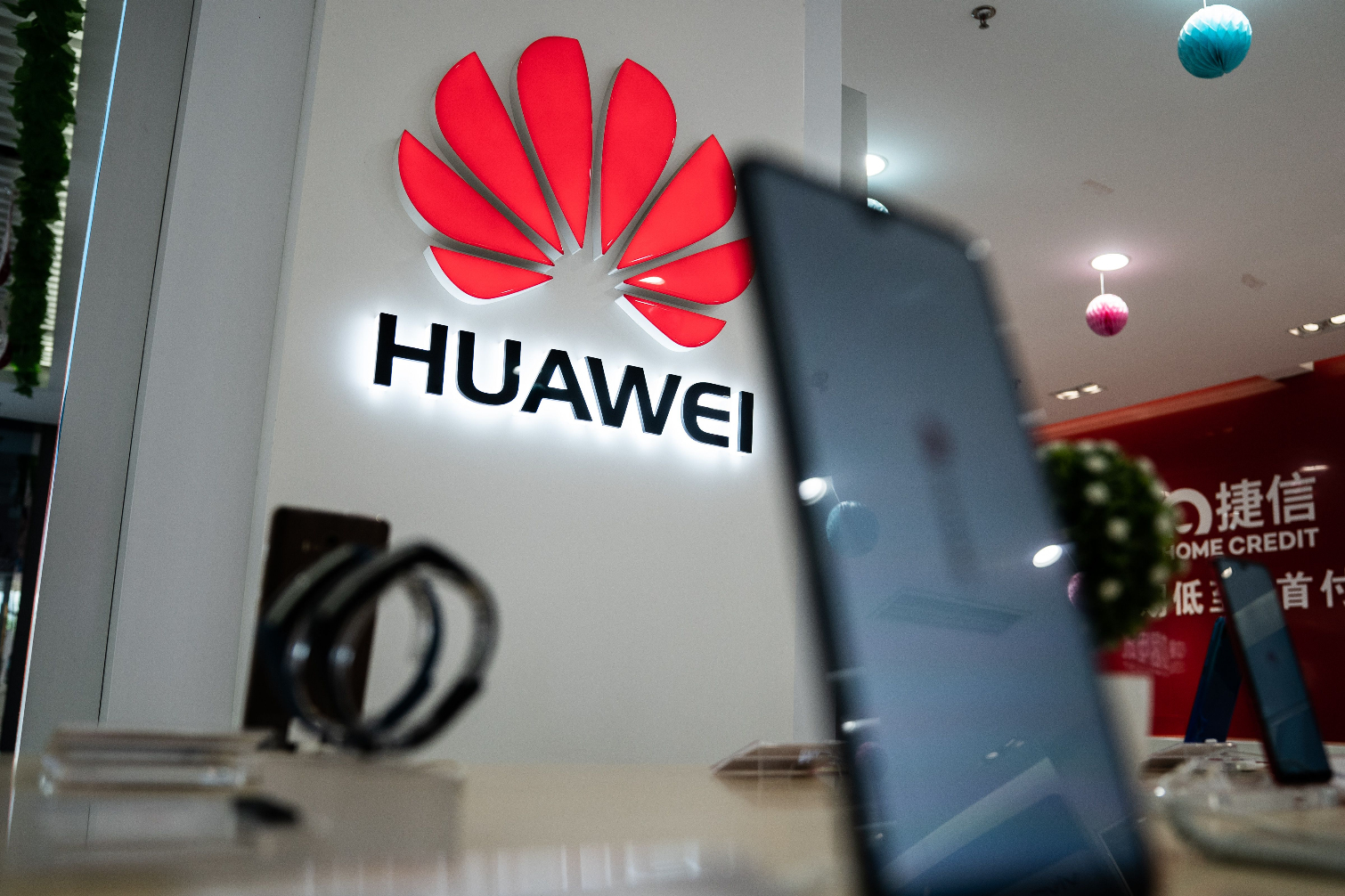Trump's Huawei Ban Could End Android As We Know It and Damage Apple (Update)
If the world’s second biggest manufacturer has to fork its own Android OS and app ecosystem, Google may be in trouble in the long run.
Update May 21 7:53 am ET: The U.S. Commerce Department has granted a 90-day license for phone companies and internet providers to work with Huawei, an exemption that allows Google to send software updates to Huawei phones through August 19.
Google is complying with Trump’s administration banning of Huawei, the world’s second biggest smartphone manufacturer. If this isn’t remedied in the short term, it may open a divide that may prove fatal to the platform and also have a lasting effect on other companies, like Apple.

If you live in the US, you may think this will not affect you. After all, if you buy what the US government spy agencies say — that Huawei is just a band of Chinese spies — who cares, right? Well, you should, even if you don’t use Huawei because the move will most surely have repercussions in the form of Chinese government retaliation — perhaps targeting Apple — and a potential division of the Android operating system.
The effect on Huawei users
Google — as Qualcomm, Intel, Microsoft, Corning, even companies like Dolby and many others — are US-based companies bound to US law. That means that this company has to stop any business with the Huawei: from selling them the glass for their screen to the OS for their computers and phones, to processors and modems, to apps and services like YouTube and Gmail.
According to Avi Greengart — founder of consumer electronics market analysis firm Techsponential — this effectively puts Huawei out of business outside of China. In an email interview, Greengart told Tom’s Guide that “Huawei cannot sell smartphones outside China without Google’s Android operating system, Google’s PLAY store, and regular software and security updates. Inside China, Huawei can use the portions of Android that are open source and its own app store.”
MORE: Huawei P30 Pro Review: A Photography Revolution
Sign up to get the BEST of Tom's Guide direct to your inbox.
Get instant access to breaking news, the hottest reviews, great deals and helpful tips.
Likewise, Huawei cannot sell laptops without Microsoft’s Windows operating system and Intel chips.
As a reminder, Huawei’s Consumer Device Business unit brought over $50 billion in revenues in 2018. “It sold 208 million phones only last year, approximately 80 million of them outside China,” according to Greengart, “and it’s the fastest growing company in Europe, with over 20% market share.” That is a lot of phones.
The impact on Huawei: 'Crippling' but good for Samsung
Huawei will be severely impacted if is forced to stop using Google's version of Android. This sort of situation has never worked out well for others.
"If I look at it through the lens of Android forks, this is a crippling situation," said Tuong Nguyen, senior principal analyst for Gartner. "Not having access to the convenience, familiarity, and ease of use of Google Play and all the associate Google apps is one of the big reasons Android fork smartphones aren’t as competitive as the non-forks."
According to Greengart, Xiaomi and OPPO, two other Chinese companies expanding around the world, should immediately pick up sales. “Samsung could see a small uptick in flagship sales as well, particularly if Huawei is not able to resume sales and support when the Galaxy Fold and the next Note start shipping later this summer,” Greengart says.
But that is “short term”. Perhaps Huawei will get out of its blacklist status as soon as China and the US reach a trade agreement. Or perhaps the blacklist will continue and Xiaomi and Oppo will be added.
Impact on U.S. companies
Many US companies will feel the impact, not big — like Intel, Microsoft, Qualcomm — and small firms — like Corning glass and Dolby. “Technology companies that count Huawei as a large customer will lose out on revenue and growth,” says Greengart, “Huawei’s device sales have been rising rapidly, which ripples throughout its supply chain.”
Intel and Microsoft provide CPUs and the Windows OS to Huawei’s burgeoning PC business. But the Chinese manufacturer’s PC sales just started in 2017, so that impact will be limited. Qualcomm, Corning and other companies will suffer the most, as they make big chunks of their revenues from all those millions of phones that Huawei sells worldwide.
Android: Google’s worst case scenario
One of the possible outcomes of this is that Huawei may decide to release their own operating system. This will count with the potential involvement of the Chinese government — and its economic resources —and the rest of the Chinese Android manufacturers. After the ZTE debacle and this, it’s clear that the Chinese can’t afford to depend on the US for a crucial part of its infrastructure and business development.
Companies like Xiaomi and Oppo can see the writing on the wall and decide to switch away from Android before they are too shunned by Trump or whoever in the next US government decides to ban as a political and economic bargaining chip.
It’s not crazy to think that other companies through the world may join that effort, too. Remember that Europeans do not agree with US arguments and will not not follow any Huawei ban based on what they believe is questionable US intelligence. Their authorities and companies will not want to depend on the whims of the American government.
If that happens, it will definetly affect Google, developers and, by extension, every Android phone user. Developers will eventually be forced to maintain two codebases. And users will have to make a choice, potentially dividing Android between the US and the rest of the world.
"Fragmentation is a real concern," said Greengart. "There is a limit to how successful you can be selling things that consumers and enterprises don't want. Google, Apple, and Microsoft make the operating systems that have deep application and services ecosystems, are embedded in the hardware supply chain, and are well supported and updated."
It will be ironic that, after years of fragmentation and Google fighting to make Android a solid ground for developers —just like Apple has done with iOS — now they have to face the opening of a potential war with the international Android manufacturers. It’s very possible that Google’s brass may be evaluating what to do next, including suing the US government.
Apple: Potential collateral damage
But the cluster-you-know-what doesn’t stop there. Like Greengart says, the indirect damage may be even worse. “Huawei is not just a large company, it one of the few Chinese companies with an international brand, and it is a source of national pride for the Chinese,” he says, “if the Chinese government wants to retaliate for trade restrictions crippling Huawei, it could target Apple.”
That would mean potentially forbidding Apple products in China but also making Apple’s providers to stop having business with Apple. “This would not be without cost – Apple is a big employer inside China,” Greengart says, “and has good relationships with the government.” But all bets are off at this point. The Chinese government can very well give money to Foxconn and other Chinese Apple providers to offset for the losses of banning business with the Cupertino company.
But Cook and company will have an extremely hard time scrambling to assemble a new supply and manufacturing line. Knowing Apple’s standards regarding timing and quality, the task will prove almost impossible in the short term.
Add to that the fact that 17% of its revenues come from sales inside greater China. Greengart says that, while Apple can afford a temporary drop in sales, “any damage to its brand appeal in China could have a terrible long-lasting impact for the company.”
In other words, whether you like Huawei or not and regardless of your opinion of Trump and his administration, this ban may have a huge and long-lasting effects for everyone involved.
Jesus Diaz founded the new Sploid for Gawker Media after seven years working at Gizmodo, where he helmed the lost-in-a-bar iPhone 4 story and wrote old angry man rants, among other things. He's a creative director, screenwriter, and producer at The Magic Sauce, and currently writes for Fast Company and Tom's Guide.

